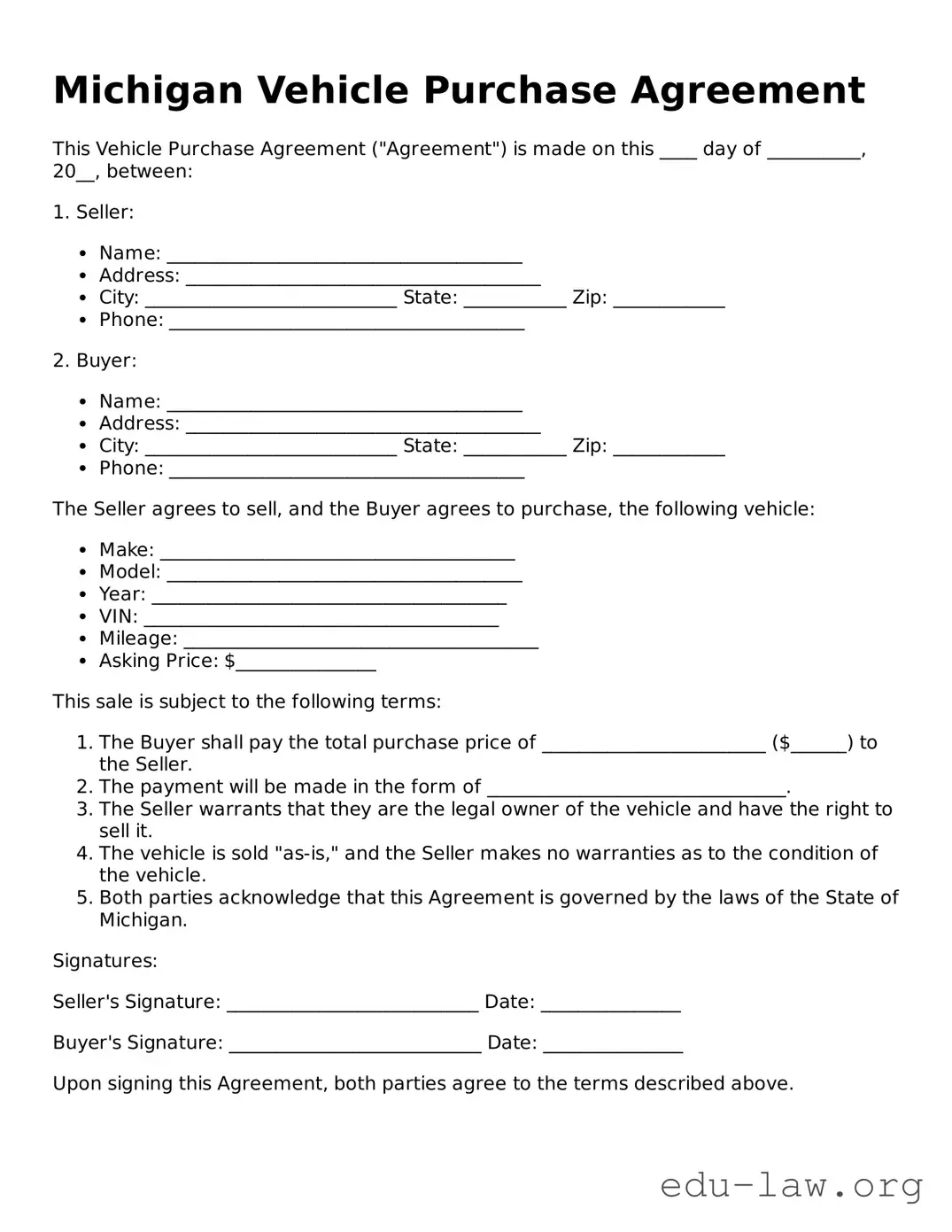The Bill of Sale is often used in vehicle transactions, making it similar to the Michigan Vehicle Purchase Agreement. Both documents serve as proof of ownership transfer. While the Michigan Vehicle Purchase Agreement specifies details of the sale and the parties involved, the Bill of Sale mainly confirms that a sale occurred. This document typically includes the purchase price, vehicle identification number (VIN), and both the buyer's and seller's signatures.
The Purchase Order serves as a formal request to purchase a vehicle, mirroring the Michigan Vehicle Purchase Agreement’s function of detailing terms between buyer and seller. The Purchase Order outlines what the buyer intends to buy, including specifications, price, and terms. After acceptance by the seller, it can become a binding agreement, similar to the Vehicle Purchase Agreement.
The Lease Agreement is another document that shares similarities with the Michigan Vehicle Purchase Agreement. While the Vehicle Purchase Agreement relates to a sale, the Lease Agreement is centered on the temporary use of the vehicle. Each document contains terms and conditions that outline responsibilities of both parties. Both documents aim to protect the interests of the buyer or lessee.
A Sales Contract governs the sale of goods, including vehicles. Like the Michigan Vehicle Purchase Agreement, it details the terms of the transaction, including price, warranties, and delivery conditions. Both documents serve to lay out the expectations of the parties involved to minimize disputes after the sale.
The Conditional Sales Agreement allows for the buyer to take possession of the vehicle while making payments. Similar to the Michigan Vehicle Purchase Agreement, it specifies the details of the transaction but includes terms regarding the consequences of defaulting on payments. This document provides clarity to both the buyer and seller regarding their rights during the payment period.
The Odometer Disclosure Statement is required in many vehicle sales. It serves a specific purpose of documenting the vehicle's mileage at the time of sale, making it similar to the Michigan Vehicle Purchase Agreement, which also tracks vital vehicle information. This ensures that the buyer is aware of the vehicle's condition and history, promoting transparency in the transaction.
The Title Transfer document is crucial when a vehicle changes ownership. Similar to the Michigan Vehicle Purchase Agreement, this document officially transfers the vehicle's title from the seller to the buyer. Both documents help establish a chain of title, which is essential for the buyer to prove ownership legally.
The Vehicle History Report provides insights into a vehicle’s past, such as accidents or title issues. While not a direct contract like the Michigan Vehicle Purchase Agreement, it is a critical document in the selling process, helping buyers make informed decisions. Transparency in the vehicle’s history is essential and complements the agreements that facilitate the sale.
The Warranty Document outlines the guarantees provided by the seller regarding the vehicle's condition and performance. Comparable to the Michigan Vehicle Purchase Agreement, the Warranty Document addresses the expectations and protections for the buyer. It details what is covered, providing peace of mind during the transaction.
